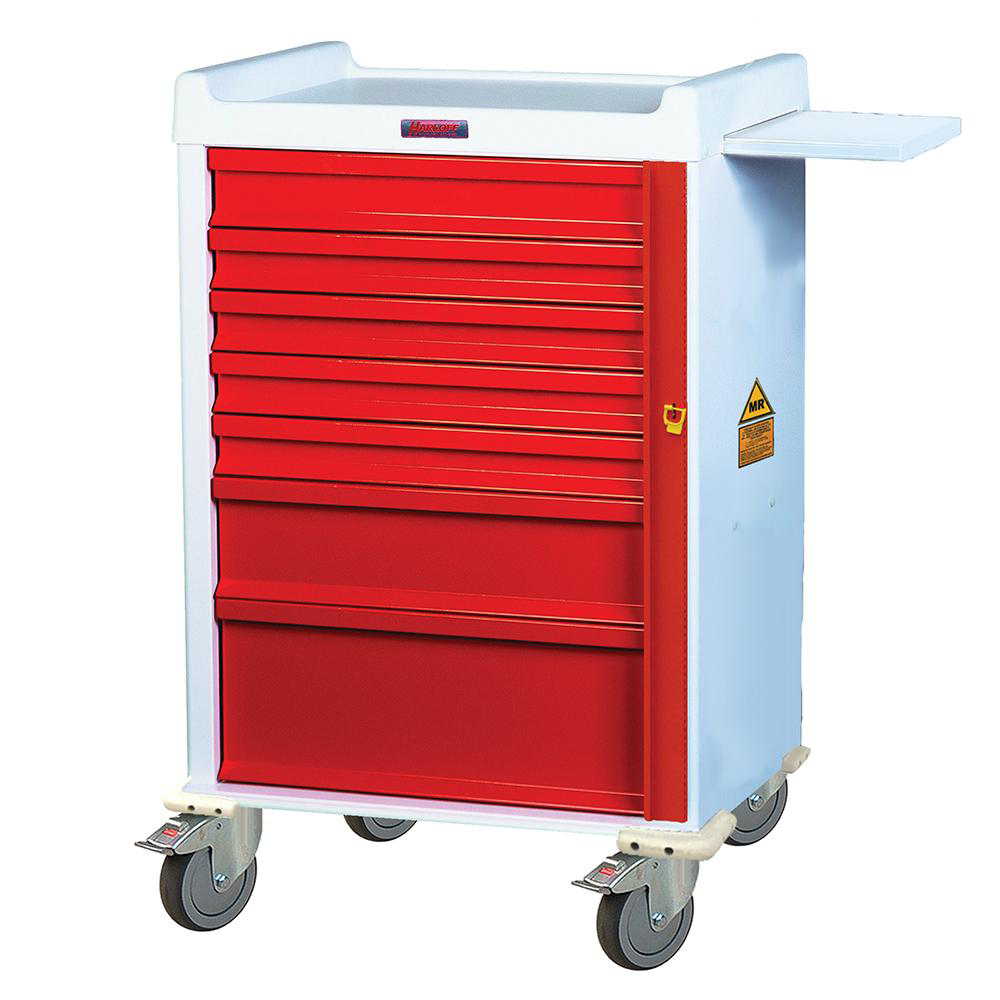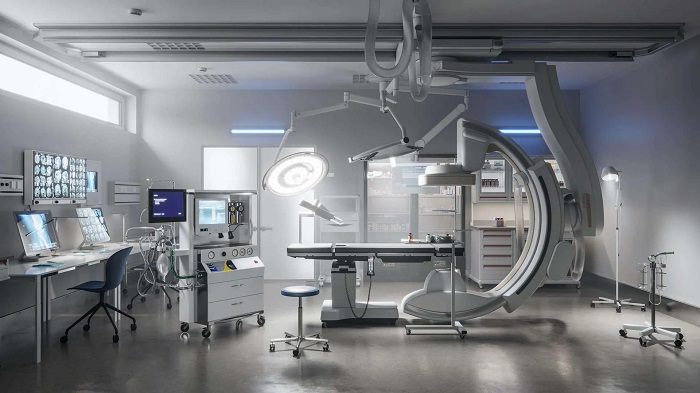-

Standard Line Med Bin Cart - SL36BIN5
$4,494.00

Understanding the Difference Between Durable Medical Equipment and Disposable Medical Supplies
-
May 30,2023
When it comes to medical equipment and supplies, have you ever wondered what sets durable items apart from disposable ones? With a wide range of products available in the market, it can be quite confusing to differentiate between these two categories.
Medical equipment and supplies are essential for the well-being of patients. They are used in homes, hospitals, and other medical facilities. However, not all medical products are created equal. Some are designed for long-term use, while others are meant to be used once and disposed of.
If you are a patient, caregiver, or medical professional, it's important to understand the difference between durable medical equipment and disposable medical supplies. This knowledge can help you make informed decisions about which products to use and how to use them safely. In this article, we will discuss the fundamental differences between these two categories of medical products and their respective uses.
When it comes to medical care, it is crucial to have the right equipment and supplies to ensure the best possible outcomes. However, with so many different options available, it can be overwhelming to know which ones are right for your needs. In this blog, we will explore the differences between durable medical equipment (DME) and disposable medical supplies, and the benefits and drawbacks of each.
1. Introduction to Medical Equipment and Supplies
Medical equipment and supplies are essential tools for healthcare providers to diagnose, treat, and manage various medical conditions. They can range from simple items such as bandages and syringes to complex technologies such as ventilators and dialysis machines. Medical equipment and supplies can be broadly classified into two categories: durable medical equipment (DME) and disposable medical supplies.
2. Definition and Examples of Durable Medical Equipment (DME)
Durable medical equipment (DME) refers to equipment that is designed to last for a long time, usually more than a year, and is used for medical purposes. Examples of DME include:
- Wheelchairs
- Hospital beds
- Oxygen concentrators
- Crutches
- Walkers
- CPAP machines
- Blood glucose monitors
DME is usually prescribed by a healthcare provider for patients who require ongoing medical care or have a chronic medical condition. DME is expected to withstand repeated use and abuse, and it is often expensive to purchase. However, many DME items are covered by insurance, making them more accessible to patients who need them.
3. Definition and Examples of Disposable Medical Supplies
Disposable medical supplies are items that are designed to be used once and then discarded. They are used for a variety of reasons, including hygiene, infection control, and convenience. Examples of disposable medical supplies include:
- Gloves
- Masks
- Gowns
- Syringes
- Needles
- Catheters
- Wound dressings
Disposable medical supplies are often used in healthcare settings where infection control is critical. They are also used for procedures that require sterile equipment or when the risk of infection is high. Disposable medical supplies are usually less expensive than DME, but they are not covered by insurance.
4. Benefits and Drawbacks of DME vs. Disposable Supplies
Both DME and disposable medical supplies have benefits and drawbacks, depending on the patient's needs and circumstances.
Benefits of DME:
- DME is designed to last for a long time, which makes it a cost-effective option for patients who require ongoing medical care.
- DME is often covered by insurance, making it more accessible to patients who need it.
- DME can improve the quality of life for patients who have mobility limitations or require assistance with daily activities.
Drawbacks of DME:
- DME can be expensive to purchase, especially for patients who do not have insurance coverage.
- DME can be bulky and difficult to transport, which can limit its use for patients who need to travel.
- DME requires ongoing maintenance and repair, which can be time-consuming and costly.
Benefits of Disposable Medical Supplies:
- Disposable medical supplies are hygienic and can prevent the spread of infection.
- Disposable medical supplies are convenient and easy to use, which can save time for healthcare providers.
- Disposable medical supplies are often less expensive than DME, making them accessible to patients who cannot afford costly equipment.
Drawbacks of Disposable Medical Supplies:
- Disposable medical supplies can generate a lot of waste, which can be harmful to the environment.
- Disposable medical supplies are not covered by insurance, which can be a financial burden for patients who require them regularly.
- Disposable medical supplies can be less durable than DME, which can result in frequent replacement and higher costs over time.
5. Insurance Coverage for DME and Disposable Supplies
Insurance coverage for DME and disposable medical supplies varies depending on the type of insurance and the patient's plan. Most insurance plans, including Medicare and Medicaid, cover some types of DME, but coverage can vary depending on the specific item and the patient's medical condition. Disposable medical supplies are not typically covered by insurance, but some plans may provide limited coverage for certain items, such as diabetic testing supplies.
6. How to Choose the Right Option for Your Medical Needs
Choosing the right option for your medical needs depends on several factors, including your medical condition, your lifestyle, and your financial situation. Your healthcare provider can help you determine which type of equipment or supplies is best for you based on your medical history and current needs.
If you require ongoing medical care or have a chronic medical condition, DME may be the best option for you. However, if you need supplies for a one-time procedure or for short-term use, disposable medical supplies may be a better choice.
It is also essential to consider the environmental impact of disposable medical supplies, as they generate a significant amount of waste.




